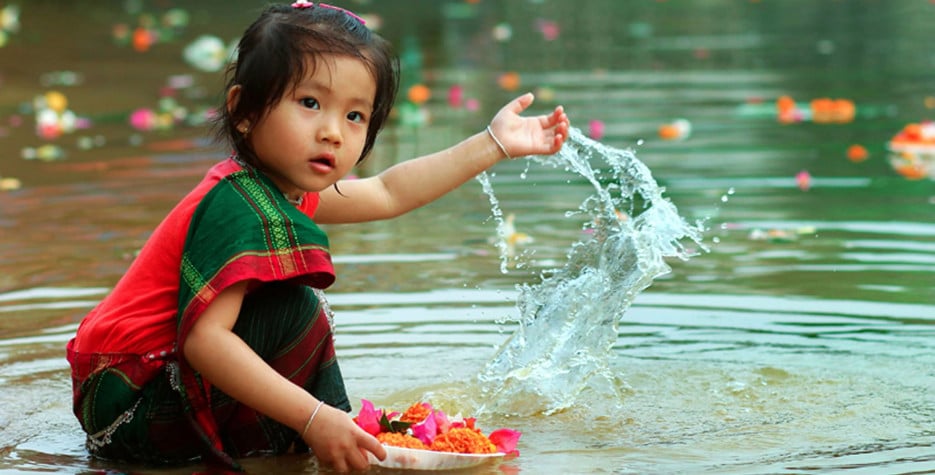When is Biju?
Biju is a regional public holiday In the northeastern Indian state of Tripura. This three-day festival coincides with the Bengali New Year's Day and runs from April 13th to 15th each year. The first day is observed a public holiday.
Traditions of Biju
Also known as Bishu or Bizu, this is the most important festivals of the Chakma people. The Chakma are Tripura's fourth-largest ethnic group, accounting for about 7% of the population.
The festival is also celebrated by seven other ethnic groups in Tripura: Marma, Tangchangya, Tripuris, Mro, Khumi, Khiyang and Chak. The Marmas call the festival "Sangraig", Tangchangya refer to it as "Bishu", Truipis call it "Baisuk" and Ahmia name it "Bihu".
Biju is an ancient pageant originally held to ensure the new agricultural season would end in a good harvest. Today it represents a chance to celebrate and showcase the rich cultural diversity of the Chakma people. Indeed, the Convener for Biju community, Pradyot Chakma, has said that the main aim of celebrating the festival is to create awareness about the culture and traditions of the Chakma community among the young generation.
On the first day, called Phool Biju, people clean their houses and clothes and pay floral tributes to the river. The second day, called Mul Biju, is dominated by the performance of traditional songs and dances, culminating with the famous Bizu dance. On the final day known as Gotche Potche Biju, elders of the community are invited for a banquet and renew their marriage vows their spouses.
Many sporting events take place during the three days.
Biju will attract visitors from other Indian states such as Assam, Sikkim, Manipur, Nagaland and even from Bangladesh, which also has a large Chakma community.


